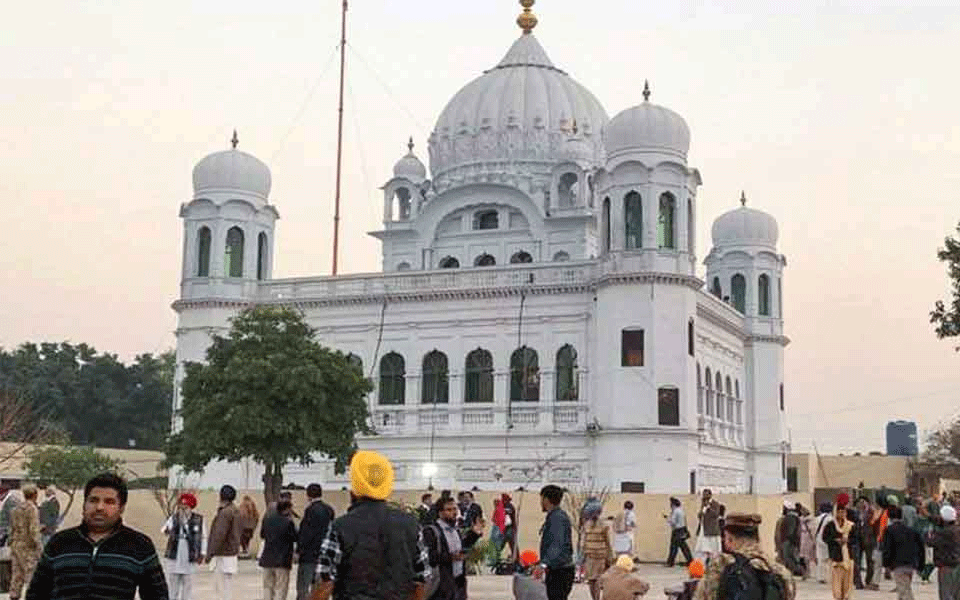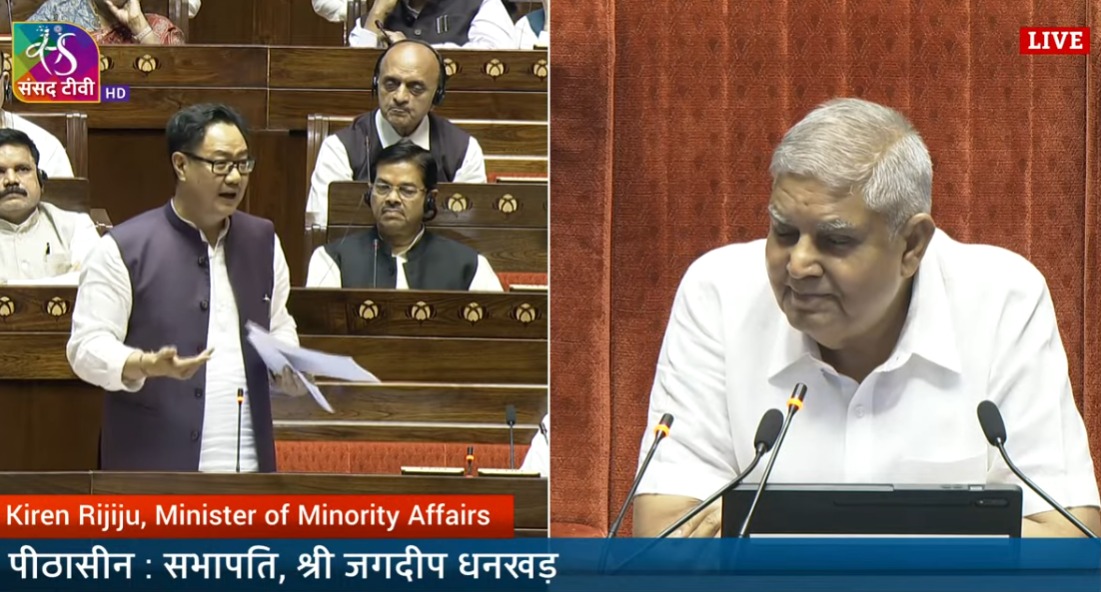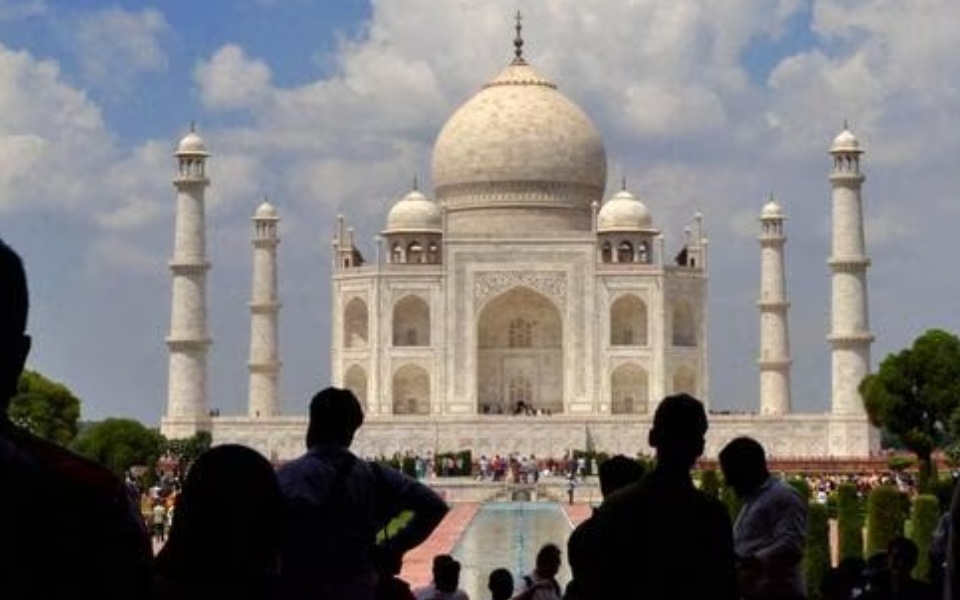Islamabad/Gurdaspur: Officials from India and Pakistan on Friday discussed the technical modalities of the Kartarpur corridor for the Sikh pilgrims, the first meeting after New Delhi revoked Jammu and Kashmir's special status leading to fresh tensions between the two countries.
The meeting being held at the Zero point, where the Indian and Pakistani side of the proposed corridor converge, is attended by 15 officials from each side, officials said.
The corridor will connect Darbar Sahib in Pakistan's Kartarpur with Dera Baba Nanak shrine in Gurdaspur district and facilitate visa-free movement of Indian Sikh pilgrims, who will have to just obtain a permit to visit Kartarpur Sahib, which was established in 1522 by Sikh faith founder Guru Nanak Dev.
This is the first meeting that is being held after India on August 5 revoked Article 370 of the Constitution, which gave special status to Jammu and Kashmir, and bifurcated the state into two Union Territories.
Foreign Office Spokesperson Mohammad Faisal, addressing media on Thursday, said Pakistan is committed to completing and inaugurating the Kartarpur Sahib corridor as announced by Prime Minister Imran Khan in November.
Pakistan and India are discussing the modalities regarding the opening of the corridor at Narowal, some 125-km from Lahore, on the occasion of 550th birth anniversary of Guru Nanak in November.
Over the past few months many rounds of meetings have been held on the corridor during which the experts from the two sides have discussed its alignment, coordinates and other engineering aspects of the proposed crossing points.
In July, delegations of the two countries held a meeting on the Pakistani side of the Attari-Wagah border to discuss the modalities of the Kartarpur corridor.
The corridor will also be the first visa-free corridor between the two neighbours since their independence in 1947.
Pakistan is building the corridor from the Indian border to the Gurdwara Darbar Sahib, while the other part from Dera Baba Nanak up to the border will be constructed by India.
Tension between India and Pakistan has escalated after New Delhi revoked Jammu and Kashmir's special status. Reacting to India's move on Kashmir, Pakistan downgraded diplomatic ties with New Delhi and expelled the Indian High Commissioner.
On November 26 last year, Vice President Venkaiah Naidu laid the foundation stone of the Dera Baba Nanak - Kartarpur Sahib Corridor (up to the International Border) at an event at Mann village of Gurdaspur district of Punjab. On November 28, Prime Minister Khan laid the foundation stone for the 4-kilometer corridor which is expected to be completed before the end of 2019.
Let the Truth be known. If you read VB and like VB, please be a VB Supporter and Help us deliver the Truth to one and all.
New Delhi (PTI): Parliament early Friday passed the contentious Waqf (Amendment) Bill, 2025, after it was approved by the Rajya Sabha.
The Lok Sabha had on Thursday approved the Bill after over a 12-hour debate.
In Rajya Sabha, the Bill got 128 votes in its favour and 95 against after all the amendments moved by the opposition were rejected.
In the lower house, the bill was supported by 288 MPs while 232 voted against it.
Participating in a debate in the Rajya Sabha, Minority Affairs Minister Kiren Rijiju said the Bill was brought with a number of amendments based on suggestions given by various stakeholders.
"The Waqf Board is a statutory body. All government bodies should be secular," the minister said, explaining the inclusion of non-Muslims on the board.
He, however, said the number of non-Muslims has been restricted to only four out of 22.
Rijiju also alleged that the Congress and other opposition parties, and not the BJP, were trying to scare Muslims with the Waqf Bill.
"You (opposition) are pushing Muslims out of the mainstream," he added.
He said for 60 years, the Congress and others ruled the country, but did not do much for Muslims and the community continues to live in poverty.
"Muslims are poor, who is responsible? You (Congress) are. Modi is now leading the government to uplift them," the minister said.
According to the Waqf (Amendment) Bill, Waqf tribunals will be strengthened, a structured selection process will be maintained, and a tenure will be fixed to ensure efficient dispute resolution.
As per the Bill, while Waqf institutions' mandatory contribution to Waqf boards is reduced from 7 per cent to 5 per cent, Waqf institutions earning over Rs 1 lakh will undergo audits by state-sponsored auditors.
A centralised portal will automate Waqf property management, improving efficiency and transparency.
The Bill proposes that practising Muslims (for at least five years) can dedicate their property to the Waqf, restoring pre-2013 rules.
It stipulates that women must receive their inheritance before the Waqf declaration, with special provisions for widows, divorced women and orphans.
The Bill proposes that an officer above the rank of collector investigate government properties claimed as Waqf.
It also proposes that non-Muslim members be included in the central and state Waqf boards for inclusivity.





